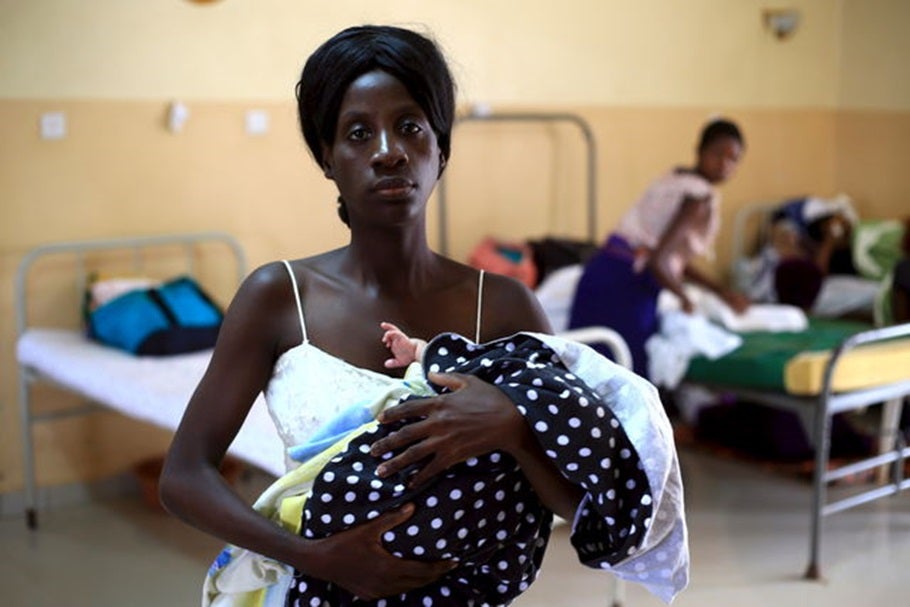How Uganda’s plumbers and security guards helped maintain PHC during the pandemic
To mark this year's World Health Day – whose theme is universal health care – we look at the East African country's notable success minimizing disruptions to the delivery of primary health care during the pandemic

When COVID overwhelmed doctors, nurses, and community health workers trying to prevent and treat infections in Uganda, plumbers and security guards working in the country's health facilities stepped in to help.
This unusual strategy was part of a broader task-shifting plan designed to free up highly trained doctors and nurses to deliver complicated COVID-related and other non-COVID essential health services. The effort sent duties cascading down the chain of command within health systems. So, responsibility for antenatal and postnatal care and treatment for malaria and diarrhea was transferred from doctors and nurses to community health workers. Community health workers were also tasked with identifying and referring patients in need of high-level care and generating demand for health care services through health promotion and social mobilization campaigns. And non-medical staff, such as plumbers and security guards in health facilities, were trained to take on support tasks like temperature screenings.
This task shifting is just one example of how Uganda reduced disruptions to the delivery of essential health services during the pandemic.
Typically, public health emergencies profoundly disrupt the delivery of essential health services such as routine childhood immunizations, antenatal care, and malaria detection and treatment. During the Ebola epidemic, for example, more people died due to the disruption of such services across West Africa than from Ebola itself.
Uganda experienced similar disruptions to the delivery of health care in the pandemic’s early days. Research by Partnership for Evidence-Based Response to COVID-19 and Ipsos found that during the first six months of the pandemic, more than half of Ugandans delayed or skipped care and infant vaccinations dropped, health facility births decreased, and maternal mortality increased.
But within months, Uganda began to address many pandemic-related supply-side and demand-side challenges, such as restrictions on movement, health worker shortages, and disruptions to medical supply chains, to restore the delivery of primary health care services quickly.
How Uganda’s health system was able to bounce back and restore pre-pandemic levels of essential health services delivery provides potential lessons for how other countries can strengthen their health system to make health systems more resilient, move towards universal health care (UHC), and strengthen their pandemic preparedness.
Exemplars In Global Health researchers examining the response to the pandemic in Uganda, Democratic Republic of Congo, Nigeria, and Senegal, found that Uganda’s response to the pandemic was strengthened by a few key strategies, policies, and circumstances. These include a swift political response at the onset of the pandemic; robust communications campaigns; the existence of a large cohort of community health workers, operating both in facilities and in communities, that supported a shift to “home-based care” when health facilities were overwhelmed; and a national task force to coordinate partners.
Another key factor was the establishment of a National Committee on the Continuity of Essential Health Services, launched within weeks of the first reported cases of COVID-19 in Uganda. This committee, led by the Director of Clinical Services at the Ministry of Health, also included international health partners, academics, and data specialists who monitored the use of essential health services across the country. They met biweekly and invited districts to present to the committee to pinpoint and address barriers to care in near real-time.
Lastly, Uganda benefited from good planning and fortune. The country had adopted a National Action Plan for Health Security one year before the pandemic hit. The National Action Plan for Health Security, which is focused on building national capacities to detect, respond and control public health emergencies, had prompted the government to invest in labs, training, and ensured that contingency funding was available for emergencies.
“Uganda also benefited from the fact that it had previously experienced other public health emergencies of international concern, such as Ebola and Marburg virus outbreaks. These experiences were helpful in that we already had surveillance, contact tracing experience and a national rapid response protocol,” said Steven Ndugwa Kabwama, an epidemiologist, public health expert, and Exemplars research partner at Makerere University School of Public Health. “Response plans were already in place for everything from CHWs to communications.”
Uganda’s experience demonstrates how countries’ pre-existing efforts towards delivering universal health care builds systems and structures (in the case of Uganda, training programs and CHW programs, laboratories, and coordinating structures) that support more resilient health systems that are capable of continuing the delivery of essential health services during emergencies such as the pandemic. The global community is increasingly recognizing that health systems strengthening is a core part of both UHC and health security.
“The experience of the pandemic, here in Uganda and elsewhere, has demonstrated the need to continue to scale up investments in health systems infrastructure,” said Kabwama. “This includes health facilities, beds and buildings, and health workers. These investments will help us in the next pandemic and also provide a foundation for making progress toward UHC.”
The World Health Organization’s position paper on building health systems resilience towards UHC and health security makes the case that such reforms, “which build all-hazards health emergency preparedness and resilient health systems, generate a substantial return on investment in terms of healthier populations, economic resilience and equitable social development.”
UHC2030, which maintains that “strengthening health systems, with a focus on equity and resilience, is crucial for UHC and health security and contributes to wider socioeconomic progress” has published a paper, Action on health systems, for universal health coverage and health security, summarizing recommendations for health leaders working towards universal health coverage.
